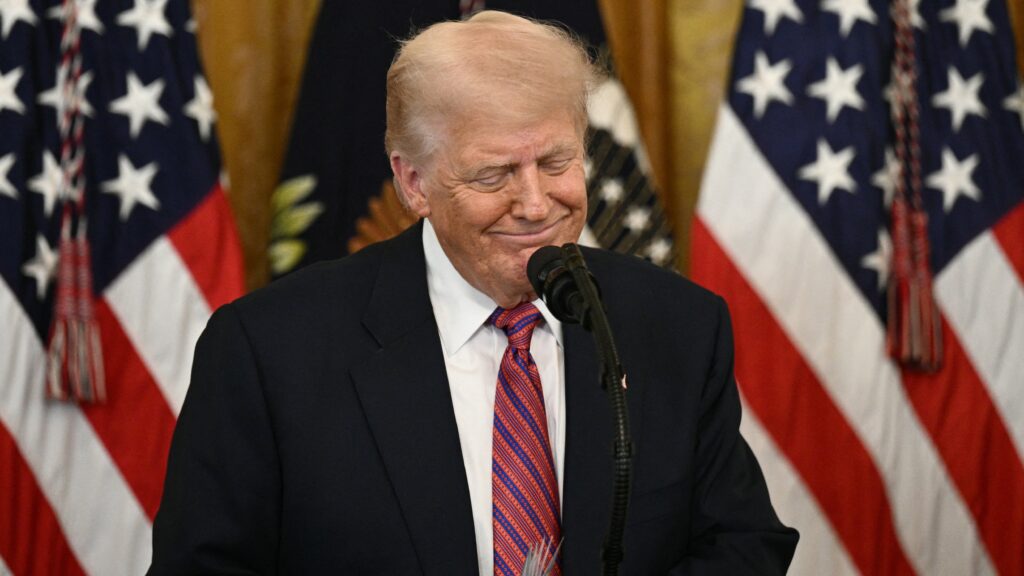
BREAKING: President Donald Trump has just signed the controversial GENIUS Act—a landmark bill that aims to solidify the role of cryptocurrencies in the U.S. financial system. Critics warn that this legislation could allow Trump to personally profit from the very industry he is now legitimizing. The bill was signed into law on July 15, 2023, following bipartisan support in both the House and Senate, where it passed by votes of 308 to 122 and 68 to 30, respectively.
The GENIUS Act, which stands for Guiding and Establishing National Innovation for U.S. Stablecoins, establishes the first regulatory framework for stablecoins—digital currencies pegged to traditional currencies like the U.S. dollar. This legislation not only facilitates the introduction of bank-issued stablecoins but also raises ethical questions about potential conflicts of interest involving the President.
URGENT: As Trump endorses this legislation, watchdog groups are sounding alarms over his financial ties to the crypto industry. Critics highlight that an amendment to prevent the President and top officials from profiting off stablecoins failed to make it through, raising transparency concerns. “If the president can issue his own currency, then the White House risks becoming a storefront for personal gain,” warned Bilal Baydoun, director at the Roosevelt Institute.
The implications of this bill are vast. Trump and his family have already engaged significantly within the crypto space, reportedly earning $57 million from token sales last year alone. Notably, Trump’s firm has launched a stablecoin, USD1, which is already tied to significant financial transactions, such as a $2 billion investment in Binance by MGX. Every transaction involving USD1 enriches the Trump family through fees, raising ethical eyebrows at a time when Trump is pushing for greater crypto legitimacy.
“The GENIUS Act could lead to a flood of money into USD1, potentially netting hundreds of millions in transaction fees for the Trump family,” Baydoun added. This is especially concerning since the bill has been framed as a means to create a “commonsense” regulatory framework, but opponents argue it falls short in consumer protection and transparency.
Interestingly, Trump’s relationship with cryptocurrencies has evolved significantly. Once a critic of Bitcoin, calling it “not money,” he is now courting the crypto community, having attended key industry events and hosting top $TRUMP token holders at his private club. His administration has also seen a notable easing of crypto regulations, including the disbanding of the Justice Department’s crypto enforcement team.
Trump’s crypto czar, David Sacks, also has a controversial past, having sold over $200 million in crypto assets before joining the administration. This has led to heightened scrutiny regarding the ethical implications of Trump’s crypto policies, especially as nineteen White House officials reportedly own between $875,000 and $2.35 million in crypto assets.
The GENIUS Act’s signing symbolizes a significant shift in the U.S. government’s approach to cryptocurrency, aiming to position the nation as a leader in digital assets. However, as the landscape evolves, the potential for corruption and personal enrichment casts a long shadow over the administration’s intentions.
WHAT’S NEXT: As this developing story unfolds, stakeholders are calling for greater oversight and accountability to ensure that government officials do not exploit their positions for personal gain. The public and regulatory bodies will be watching closely as the effects of the GENIUS Act begin to take shape in the coming weeks.
Stay tuned for updates as this story develops, and share your thoughts on the implications of this legislation.





